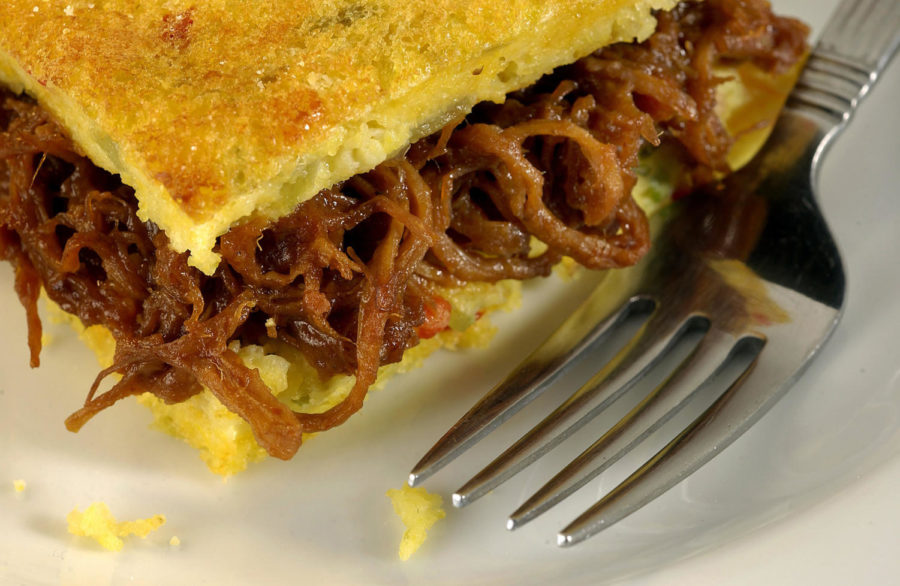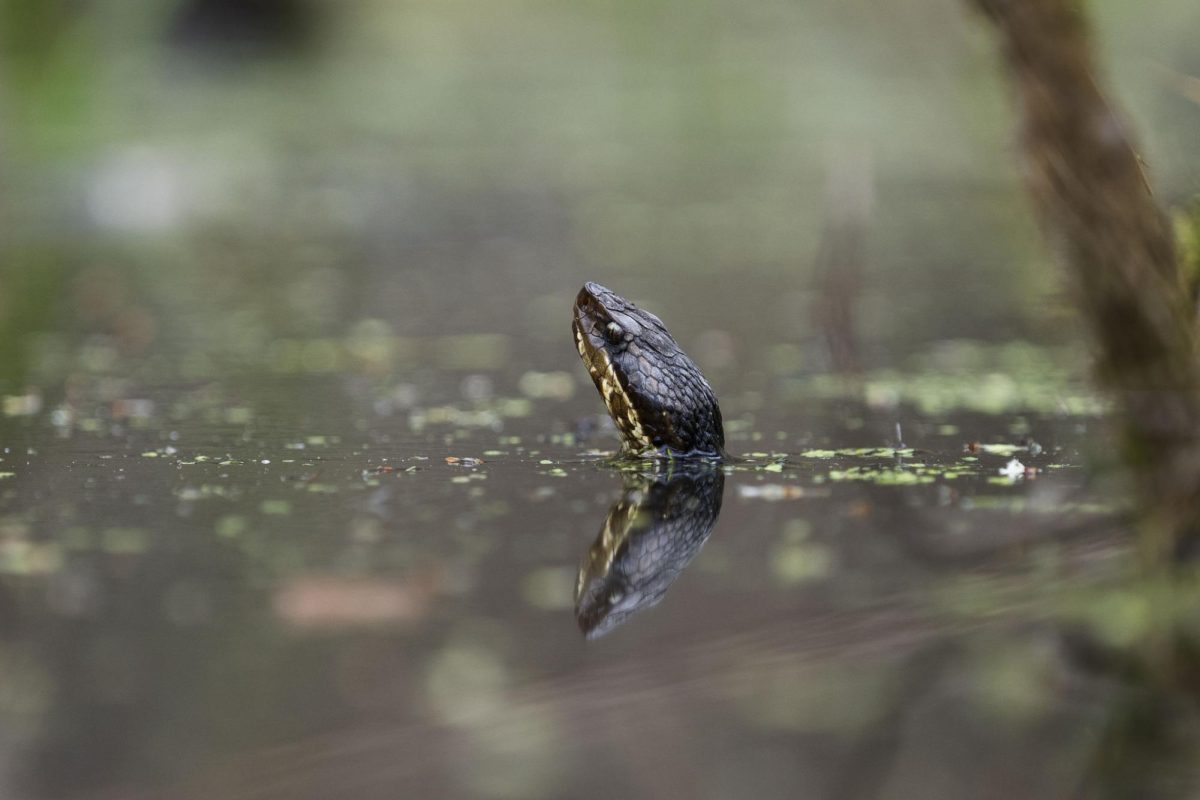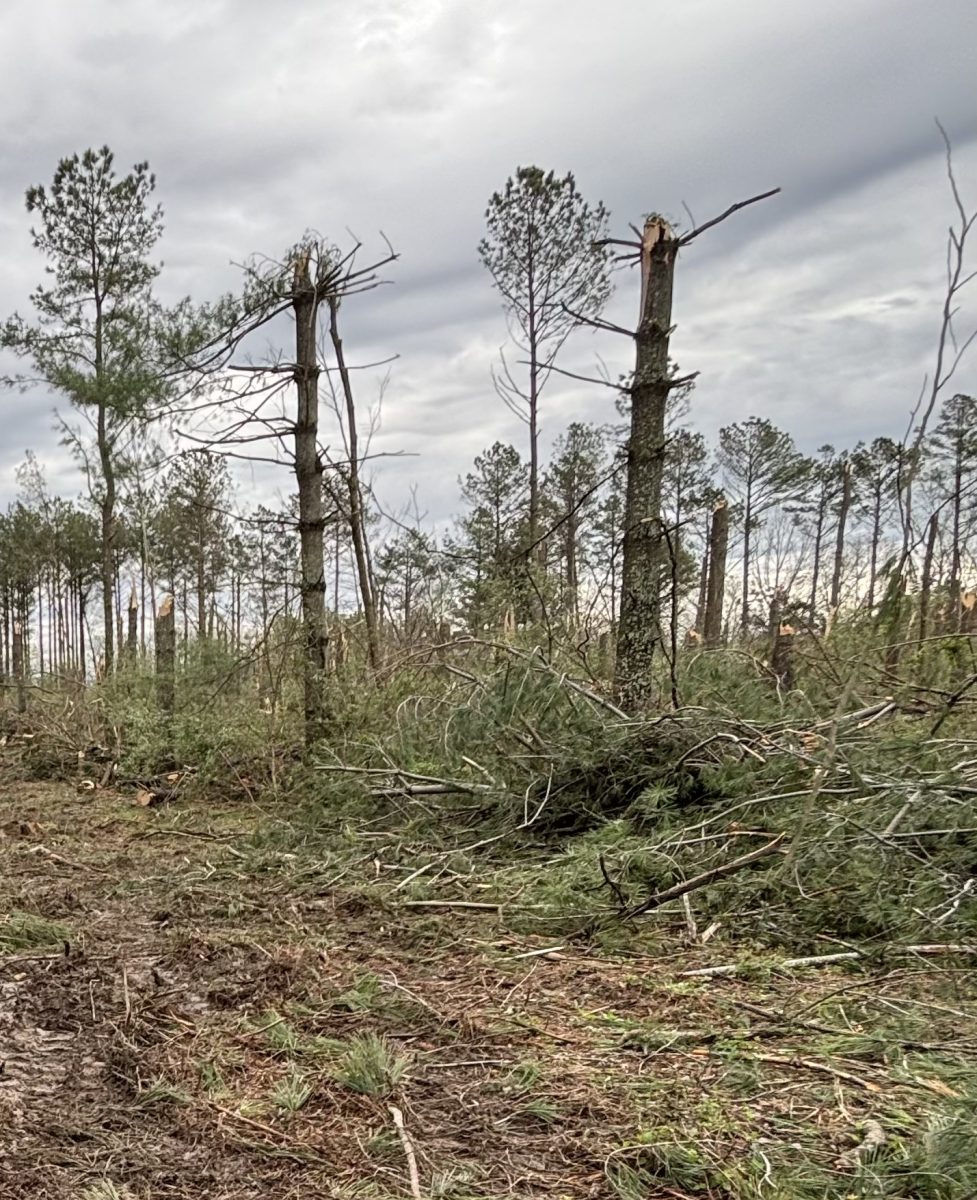SIU student researching the origins of barbecue
Barbequed pork is sandwiched between layers of corn bread that is bolstered with cheddar, corn kernels and jalapeno. (James F. Quinn/Chicago Tribune/TNS)
November 15, 2017
While many people may say they’re passionate about their favorite foods, Zach Myers is taking that passion one step further by asking just how his favorite food — barbecue — came to be.
It all started when Myers, a senior studying history, tried to track where barbecue began for a history of food course.
“When I first started, it was more of a, ‘Here’s why Memphis has the best barbecue,’” he said. “Then I realized it was the most biased thing I’ve ever written in my life, so I definitely had to change my questions.”
Advertisement
Merriam-Webster defines barbecuing as the act of “roasting or broiling on a rack or revolving spit over or before a source of heat.”
A Memphis native, Myers said barbecue has always been influential food in his life and he remembers making ribs with his father.
Now, Myers is exploring barbecue’s roots.
He uses everything from historical documents to cook books to a text titled “Cornbread Nation 2: The United States of Barbecue.”
Barbecue’s origins can’t be traced to one culture, he said; rather, it’s a mix between Native American, African and slave and European practices.
“All three of those combine and create the southern phenomenon of barbecue,” Myers said.
From there, he said he is seeking to discover how each group impacted barbecue and what that means for regional styles, such as Memphis and Kansas City techniques.
Advertisement*
“There’s a million different ways to cook a pig,” Myers said. “Everybody’s got their different opinion on how to do it.”
That cultural representation is not necessarily apparent in some regions, he said. For instance, Myers said many of Texas’ most well-known barbecue restaurants have white owners.
One reason for this is that in the 60’s, Myers said minorities largely found audiences using roadside stands, not brick-and-mortar restaurants. Those stands would later be shut down with stricter FDA laws, he said.
But he said black history is intimately connected to the evolution of barbecue.
He said Kansas City-style barbecue was a result of the Great Migration, a 20th century mass exodus of African American people from the South to avoid racism and prejudice.
SIU photojournalism professor Mark Dolan is currently traveling across the country to capture and experience barbecue throughout America. He said he’s met barbecuers of multiple ethnicities.
“I’ve seen the gambit,” he said. “There’s plenty of diversity out there.”
Myers said barbecue been served for hundreds of years in South; in fact, he said President George Washington used to serve barbecue at official political events.
Barbecuing stretches back even farther than that, Myers said, appearing in Spanish documents as early as the 1500s when conquistadors saw Native Americans smoking fish over an open pit.
While smoking meat is associated with Native American traditions, he said Europeans then began to practice smoking meat by placing it in the ground.
He said that practice would later implement slave spices, in turn inspiring Memphis-style dry rubs.
“There’s probably all kinds of barbecue joints in Mississippi and Arkansas — backwoods stuff that nobody knows about except the local people,” Dolan said following a stop at SIU after a photoshoot in Memphis. “It’s people that have a pit set up; they’re making it until they sell out, then they shut down.”
Myers said he is currently working to enter a masters teaching program, and he said he ultimately wants to become a high school history teacher.
“I want to get as much history in my head as I can so that I don’t have to be chained to a textbook,” Myers said. “I can teach from legitimate ideas.”
Staff writer Cory Ray can be reached at cray@dailyegyptian.com or on Twitter @coryray_de.
To stay up to date with all your southern Illinois news, follow the Daily Egyptian on Facebook and Twitter.
Advertisement









